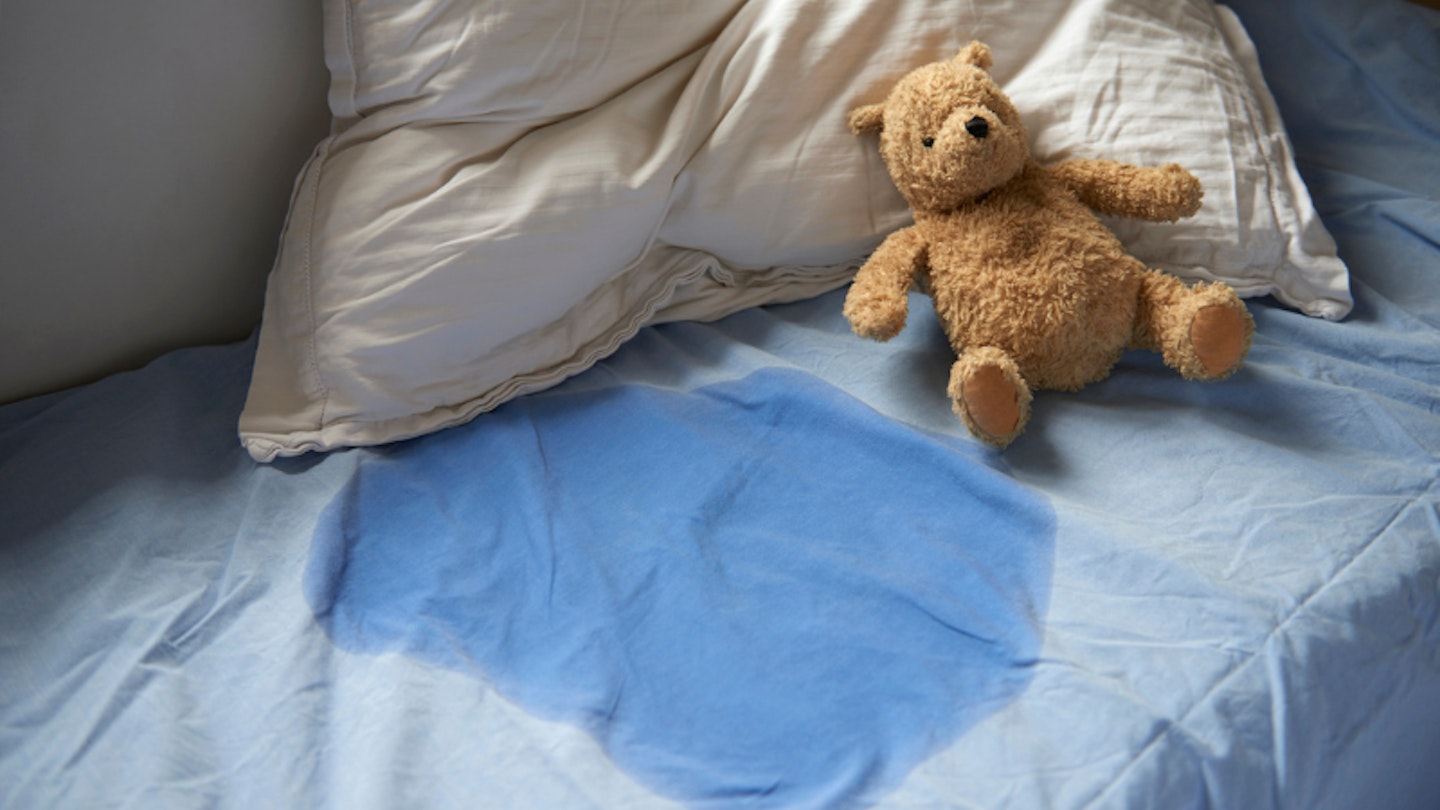At some point, most toddlers will wet the bed. Bedwetting is a common problem and normally one which your little one will grow out of as they develop. However, whether they are wetting the bed during potty training, or if they haven't yet reached the stage where they can be dry all night, there are products for bedwetting that can help your little one (and you!) get a good, dry night sleep.
Even if your little one has mastered daytime potty training, nighttime potty training can be a lot more tricky and might take a little longer. Even so, constantly changing the bed is hard work and of course, it isn't nice for your toddler to keep waking up wet, especially if it is disrupting their sleep.
Bed wetting can also be a problem for older children, beyond the age of potty training, and it can be caused by a variety of reasons, and might even occur after they have been dry for a while at night. Normally it is nothing to worry about, but if your little one was dry and suddenly starts consistently wetting the bed, it is best to speak to your doctor.
What causes bed wetting?
Bed wetting is extremely common and the NHS advises that many children under the age of 5 wet the bed. Jennie Lannette Bedsworth, a clinical social worker and behavioural therapist, says: "The medical term is nocturnal enuresis. It's very common, affecting about 15% of 5-year-olds. Most kids naturally outgrow it as their bladder control matures, usually by age 7. There can be various causes. Often it's simply due to the child's bladder not being fully developed yet. But certain medical conditions like diabetes, urinary tract infections, or sleep disorders can also play a role. Psychological stressors or changes in routine sometimes trigger it too."
The NHS suggests some reasons for bed wetting includes:
• Not feeling the need to pee while sleeping
• Making too much urine at night
• Child's bladder is too small / not stretching enough to hold urine
• Stress at home or school
Of course, some younger children may still be potty training at night, and that can be another cause for bedwetting, because they are not ready to come out of nappies when they sleep. However, the NHS advises that if a child has been dry for six months or more and they start wetting the bed, then there might be an underlying cause for their nocturnal enuresis, and you should consult your doctor.
Can medical problems cause bed wetting?
Yes, although bedwetting is very common and likely to be a developmental phase, or it could also be caused by stress, there are some medical conditions which can cause bedwetting and these include:
Diabetes: Type 1 Diabetes will cause your child to urinate more during the day and night. Superintendent Pharmacist, from Chemist Click, Abbas Kanani, adds that this is because: "The child's kidneys may be working harder than usual to flush out excess sugar in the blood."
Sleep apnea: If your child cannot get into deep sleep due to sleep apnea, their body will continue to produce the same amount of urine at night as during the day, leading to bedwetting.
Hormone imbalance: Everyone's body makes an antidiuretic hormone (ADH), which helps your kidneys regulate how much water is in your body, sometimes though there might be too much, or too little of this hormone.
Constipation: Superintendent Pharmacist, Abbas Kanani, says: "A swollen bowel can put pressure on the bladder and shrink its capacity. This leaves the child unable to hold as much urine during the night." Also, your little one's bladder might not empty as well as it should when they are constipated and that can lead to bedwetting.
Urinary tract infection: A UTI can cause your child to urinate more, or their bladder might not empty properly making it harder for them to stay dry at night.
If your little one has never been dry at night, or they are under five, don't panic, they might just not be ready and it might take them a little longer for nighttime potty training.
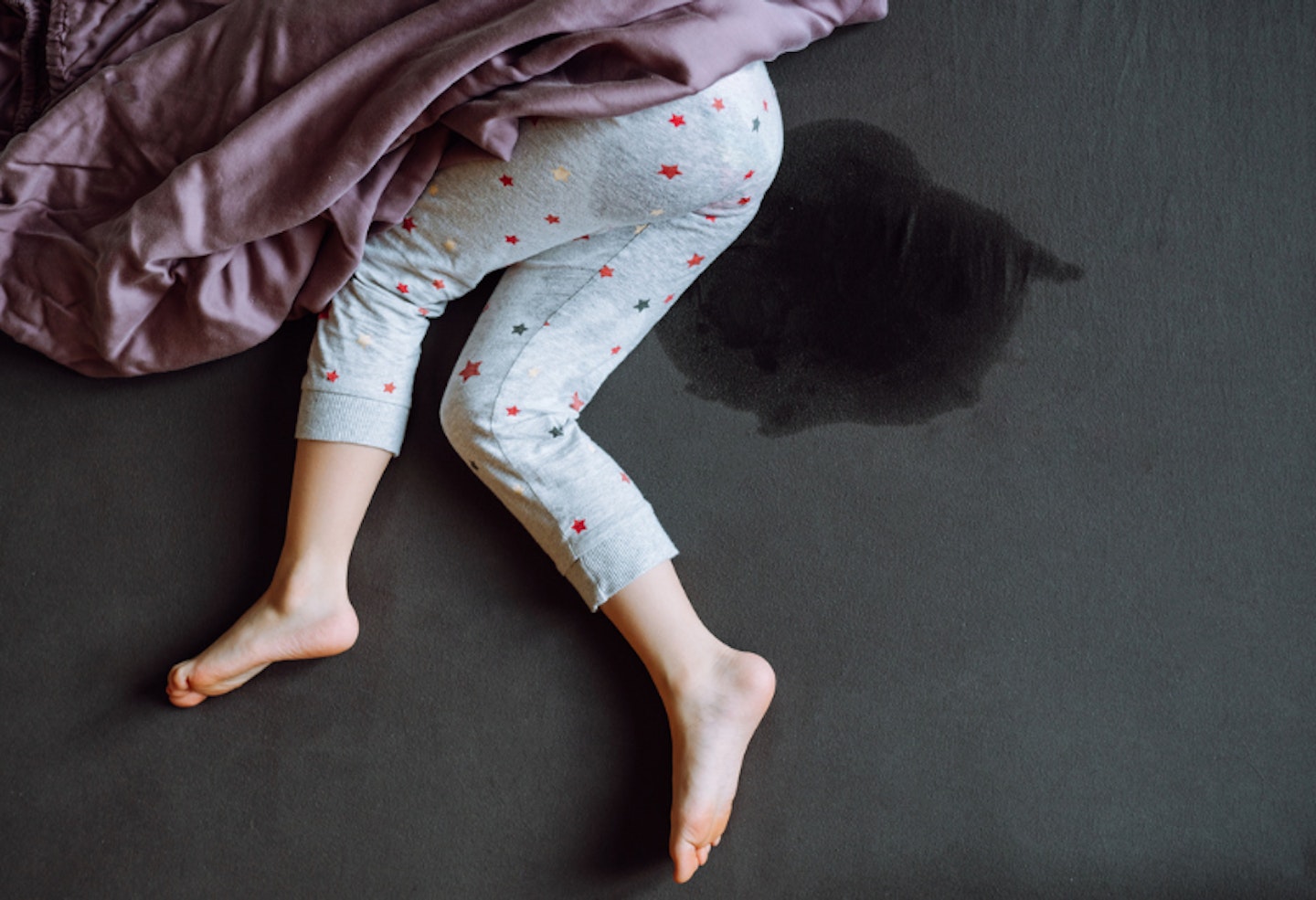
How to treat bedwetting
If your little one is persistently wetting the bed, especially when they were previously dry, then you might need to think how to help them. Your doctor could prescribe a drug called Desmopressin, which reduces the amount of urine a child produces at night, by increasing the levels of the hormone vasopressin. However, there are alternatives to medication such as a bedwetting alarm.
What types of bedwetting alarms are available?
A bedwetting alarm contains a sensor and a sound box. You can either get a pad and bell system which is placed under your child, or a body-worn alarm which attaches to your little one's pyjamas or underwear. Both sound an alarm when they detect moisture, and the alarm should wake your little one. The alarm might just be a loud noise, but some even vibrate or have lights.
How does a bedwetting alarm work?
Use a bedwetting alarm helps train your child to wake up when they have the urge to wee. The sensors are extremely sensitive and will start to go off as soon as your child starts to urinate. This should wake your child, who might stop urinating to finish in the toilet or they will begin to know when their bladder is full and wake to go to the toilet before they wet the bed. You need to use the alarm every night until your child has been dry for 14 consecutive nights. On average, it can take 3-5 months for a bedwetting alarm to be effective and stop bedwetting.
How successful are bedwetting alarms?
For the bedwetting alarm to be successful, your little one needs to understand how the alarm works and be prepared to engage with it. Therefore, they are more successful in children 7 or over. However, they can work for children from 5 -7 but it might take longer.
What other products are available to help with bedwetting?
If your little one is only occasionally wetting the bed, or they have never been dry, medication or an alarm might not be necessary. That doesn't mean that you want to be constantly changing wet sheets and while your little one goes through this tricky phase, or is figuring out nighttime potty training, you might want a little help to minimise the amount of laundry and sleep disruption. Below we have listed some useful products to try if your little one is not yet dry at night:
• Bedwetting sheets
• Mattress protectors
• Bedwetting pads
• Toddler nighttime nappies
There are lots of options to help you manage bedwetting, and most importantly, to help your little one get through it without any upset or worry. Abbas Kanani emphasises: "Try not to punish your child if they wet the bed, instead praise them whenever they use the toilet." if you need some help with bedwetting, we have rounded up some of the best bedwetting products to help you and your little one on the way to dry nights.
Best bedwetting products 2024
Best pad and bell bedwetting alarm
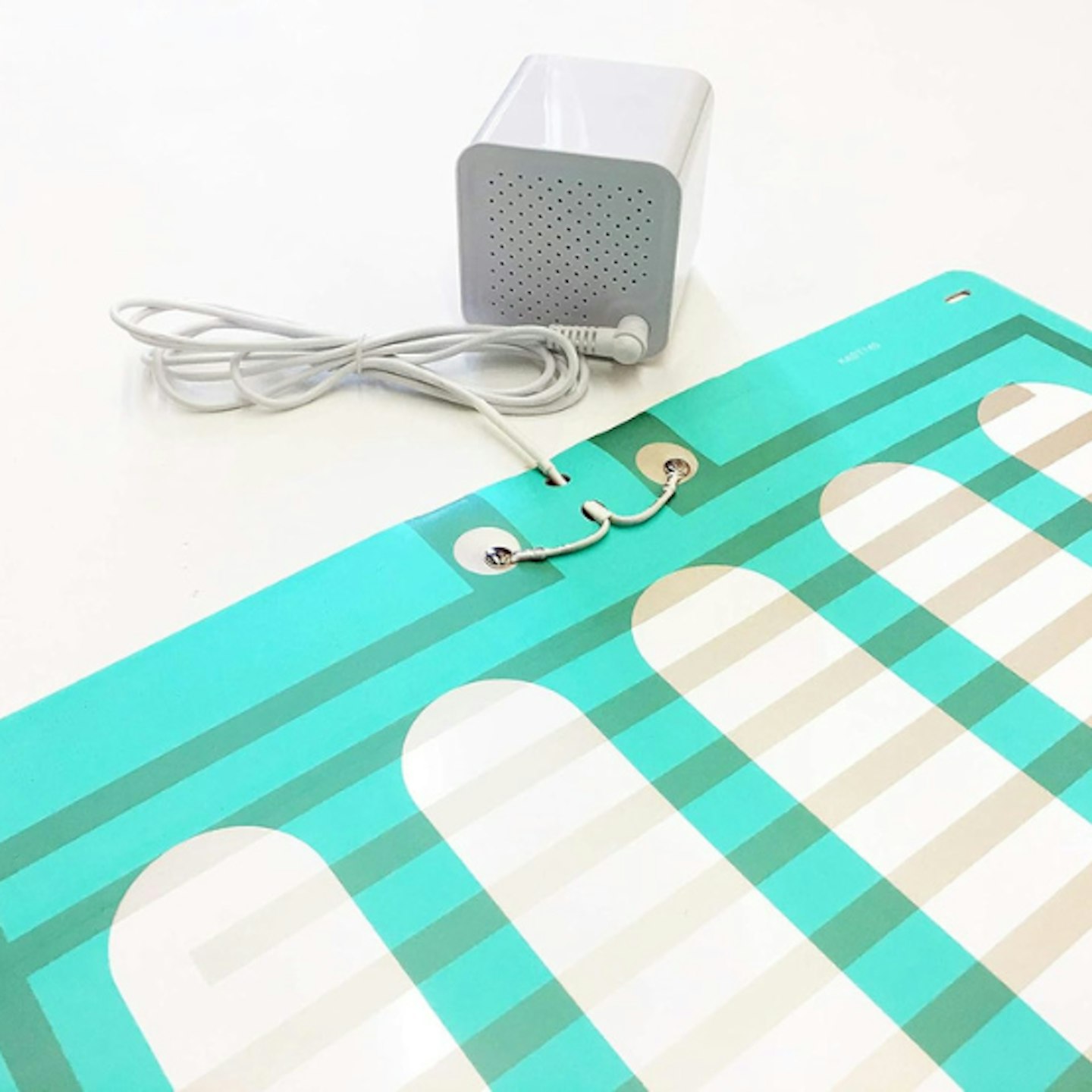 Amazon
AmazonThe Astric Dry-Bed bedwetting alarm is in two parts with an extremely sensitive control unit and a consumable detector pad which is placed over the mattress protector and sheet, then covered with a smaller sheet. As soon as the first few drops of urine touch the pad, the alarm sounds to wake your little one. There is a volume control and you can choose from 3 different sounds.
One trusted reviewer said: "Brilliant and has worked a treat on our relentlessly wetting 6y old boy. He was drenched nightly and would not wake up. I had delayed purchasing an enuresis alarm as I was sceptical. I take it all back, best £100 I’ve ever spent! It might look like an office wall planner and it comes in a generic card box. Don’t worry - it’s fab!"
Pros
- Three volume options
- Very sensitive alarm
Cons
- Some reviewers didn't think the plastic mat was comfortable to sleep on
| Dimensions: | 44.6 x 17.4 x 9.1 cm |
| Power supply: | 2 x AAA batteries |
- Three volume options
- Highly sensitive
Best body-worn bedwetting alarm
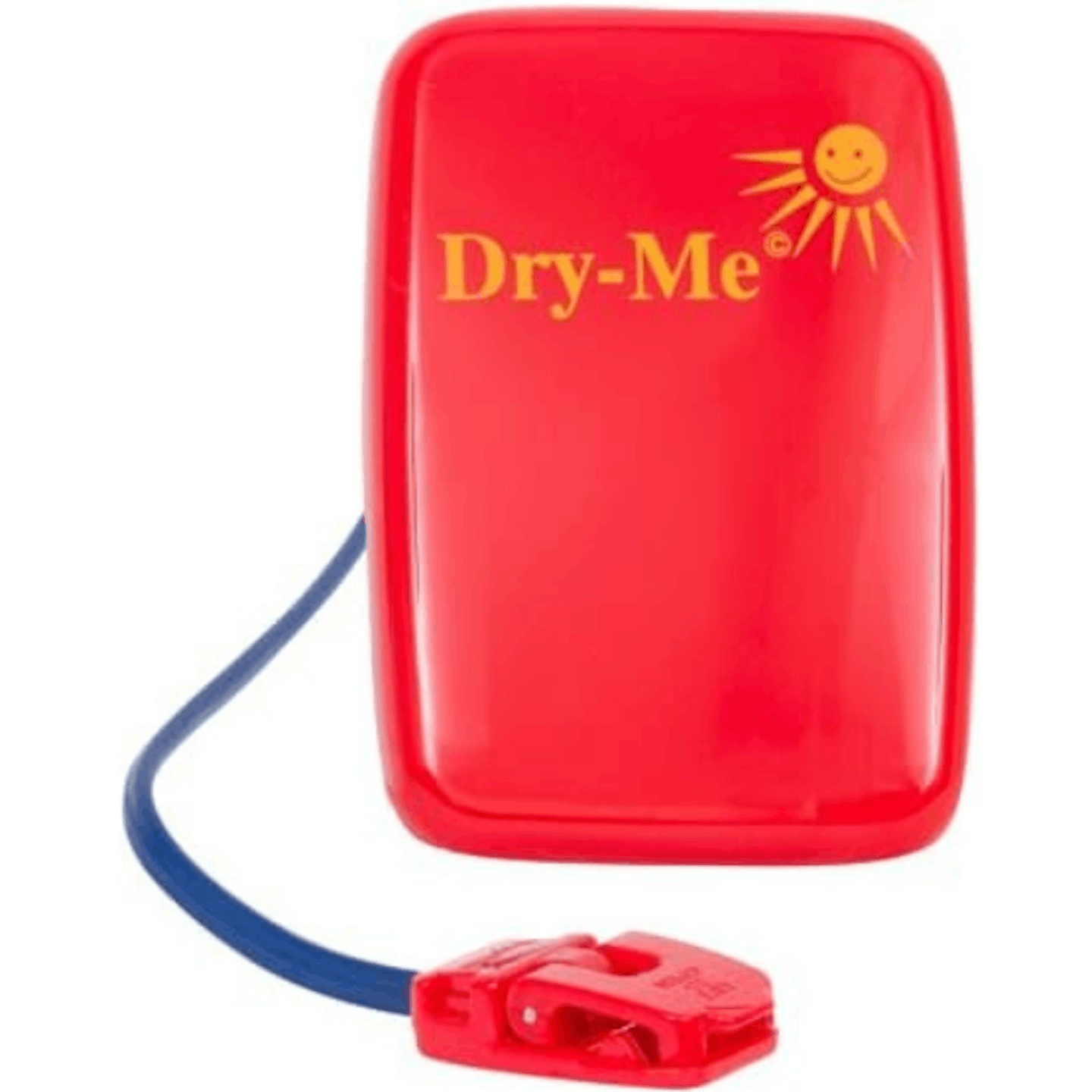 Amazon
AmazonThis alarm has a sensor which clips onto the outside of your child's underwear and stays in place while they sleep. If they wet the bed a loud alarm, or vibration alert, will wake your child up. There are eight different tones to choose from.
One reviewer said: "This alarm has worked perfectly and our daughter is now sleeping through the night without waking or wetting! Thank you!"
Pros
- Fixes to your child's underwear so they don't have to sleep on a mat
- Sound or vibration alert
Cons
- Some reviewers said the plastic is a bit flimsy
| Dimensions: | 6.6 x 4.7 x 1.8 cm |
| Weight: | 100g |
| Power supply: | 2 x AAA batteries |
- Fixes to your child's underwear
- Sound or vibration alert
- 8 different tones
Best reusable bed protector pads
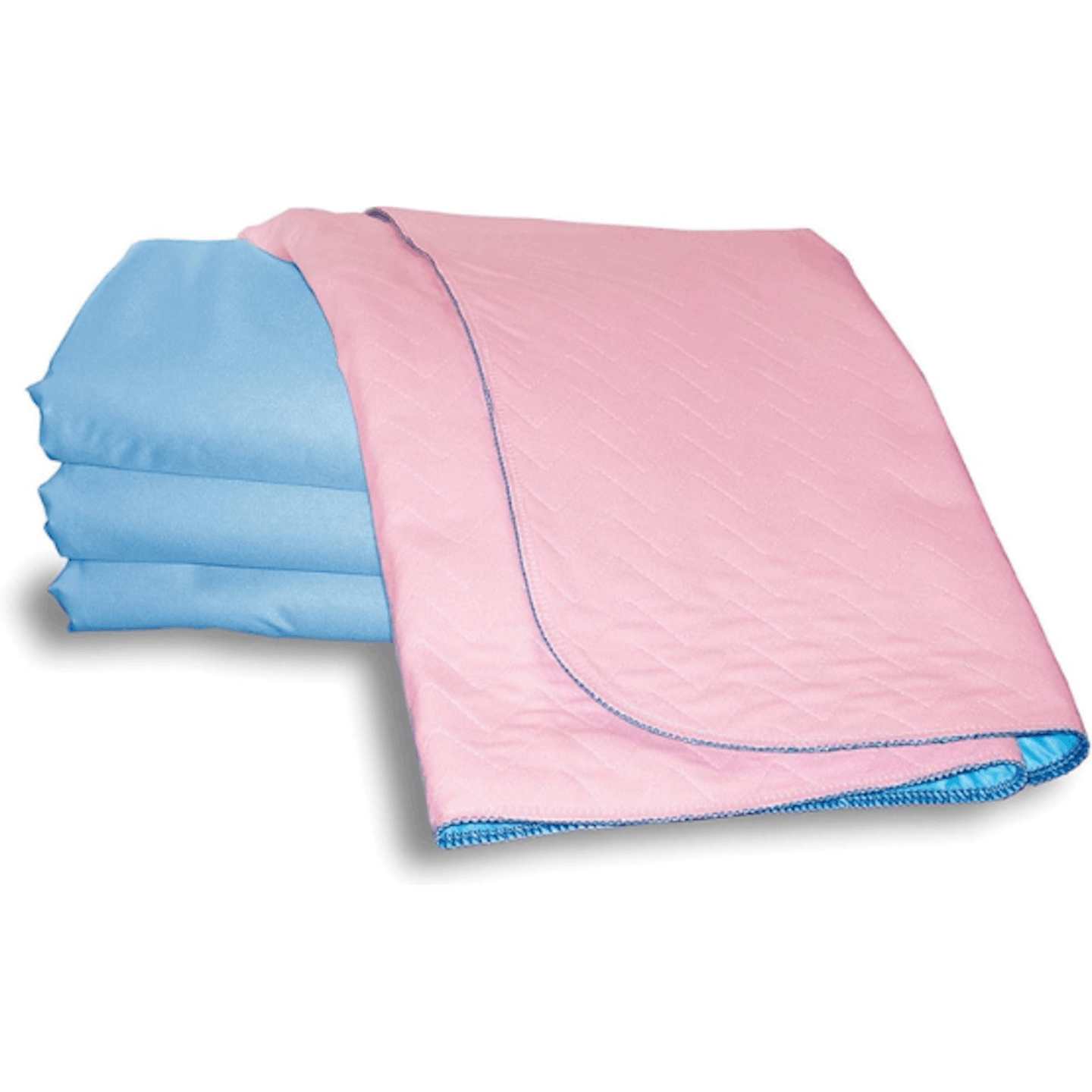 Amazon
AmazonThese pads are a great way to protect your little one's bed when they have an accident. They are soft and highly absorbent, so they not only protect the mattress but your child stays dry too. The highly absorbent soaker layer is complimented by a long-life top surface and has a stay dry fluid proof barrier which means you shouldn't have to change all the bedding, just wash this pad.
Laura Healy, Commercial Content Writer at Mother&baby.com, says: "My four year has been struggling with bedwetting and sometimes even soaks through nappies, so these pads are great for keeping her dry and comfortable. They really do protect the mattress and absorb any liquid, and they are simple to wash and quick to dry too. They can be placed over the sheet to reduce the amount of washing each night. My four year old likes sleeping on these because they are comfortable and also she is reassured she won't wake up cold and wet. "
Pros
- Soft and comfortable
- Highly absorbent
Cons
- Can move around when little one sleeps
| Dimension: | 85 x 90 cm |
| Absorbent capacity: | 3000ml |
| Number per pack: | 2 |
- Machine washable up to 95 degrees
- Safe in the tumble dryer
- Pack of two
- Highly absorbent
Best waterproof sheet
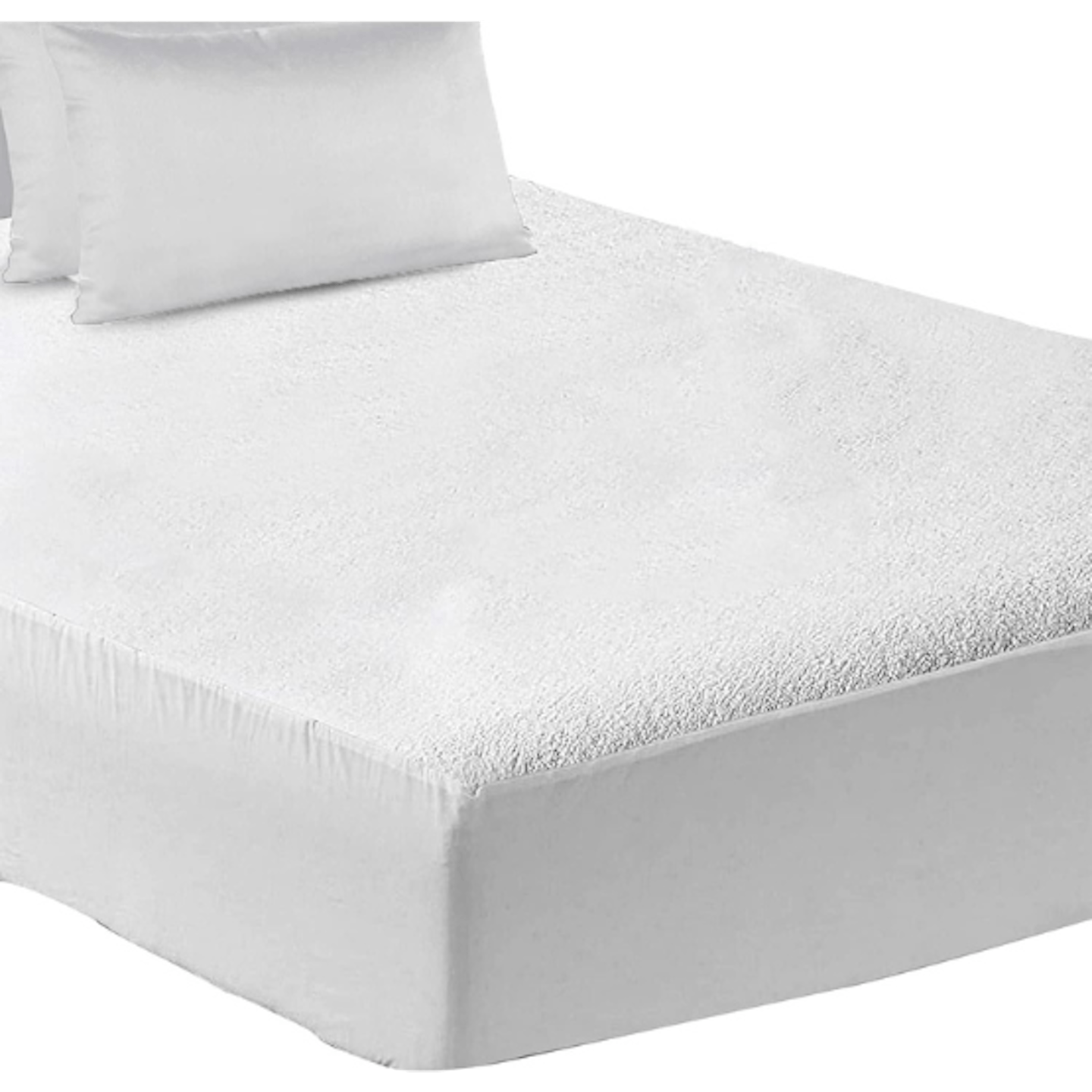 Amazon
AmazonGreat protection for your little one's mattress, this sheet is made from 100% Terry cotton which absorbs fluid but also adapts to body temperature and is breathable. It has a stretchy skirt that ensures it stays in places and the whole mattress is protected.
One reviewer commented: "I recently purchased this waterproof mattress protector, and I am thrilled with its performance. The quality is outstanding, and it fits my mattress perfectly. Its waterproof feature provides excellent protection against spills and accidents, giving me peace of mind."
Pros
- Stays in place
- Quiet, doesn't rustle with movement
Cons
- Slow to dry when washed
| Dimensions: | 190 x 90 x 30 cm |
| Material: | Terry towel cotton |
- Machine washable
- Available from cot bed to Kingsize
- Quiet
- Absorbent
- Hypoallergenic
Best disposable bed pads
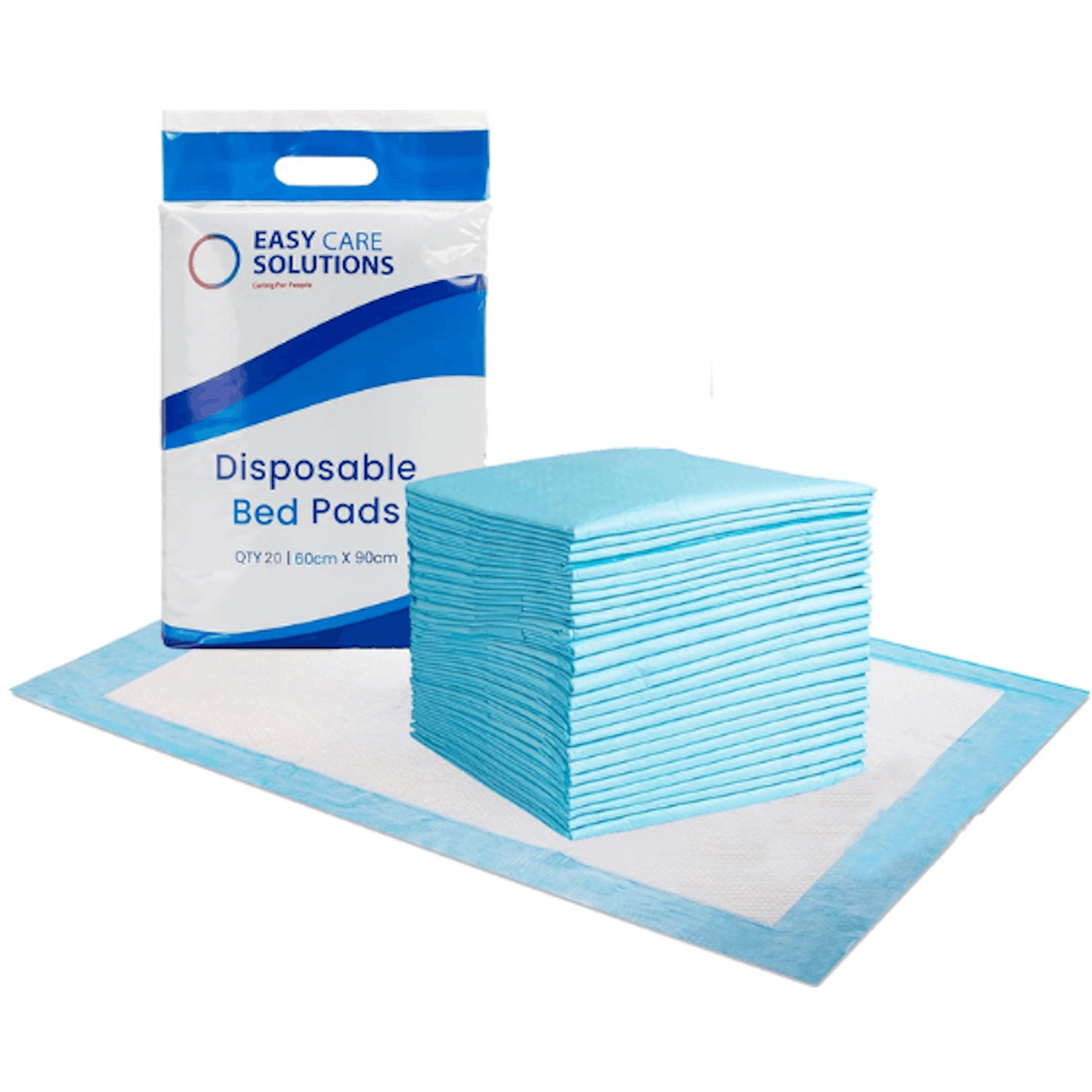 Amazon
AmazonThese large disposable pads are convenient to use for busy families. They quickly absorb moisture, and we like that they are latex free and hypoallergenic.
A trusted reviewer said: "Purchased two lots of these. They worked a treat. A full sheet covered a single bed width and absorbed any leakages. They could be cut to different sizes too."
Pros
- Can be cut to size
- Hypoallergenic
Cons
- Not very eco-friendly
| Dimensions: | 60 x 90 cm |
| Number per pack: | 40 |
| Material: | Polypropylene, Cellulose Fibre |
- Large convenient pads
- Can be cut to size
- Disposable
- Hypoallergenic
- Latex free
Best nighttime nappies for older toddlers and children
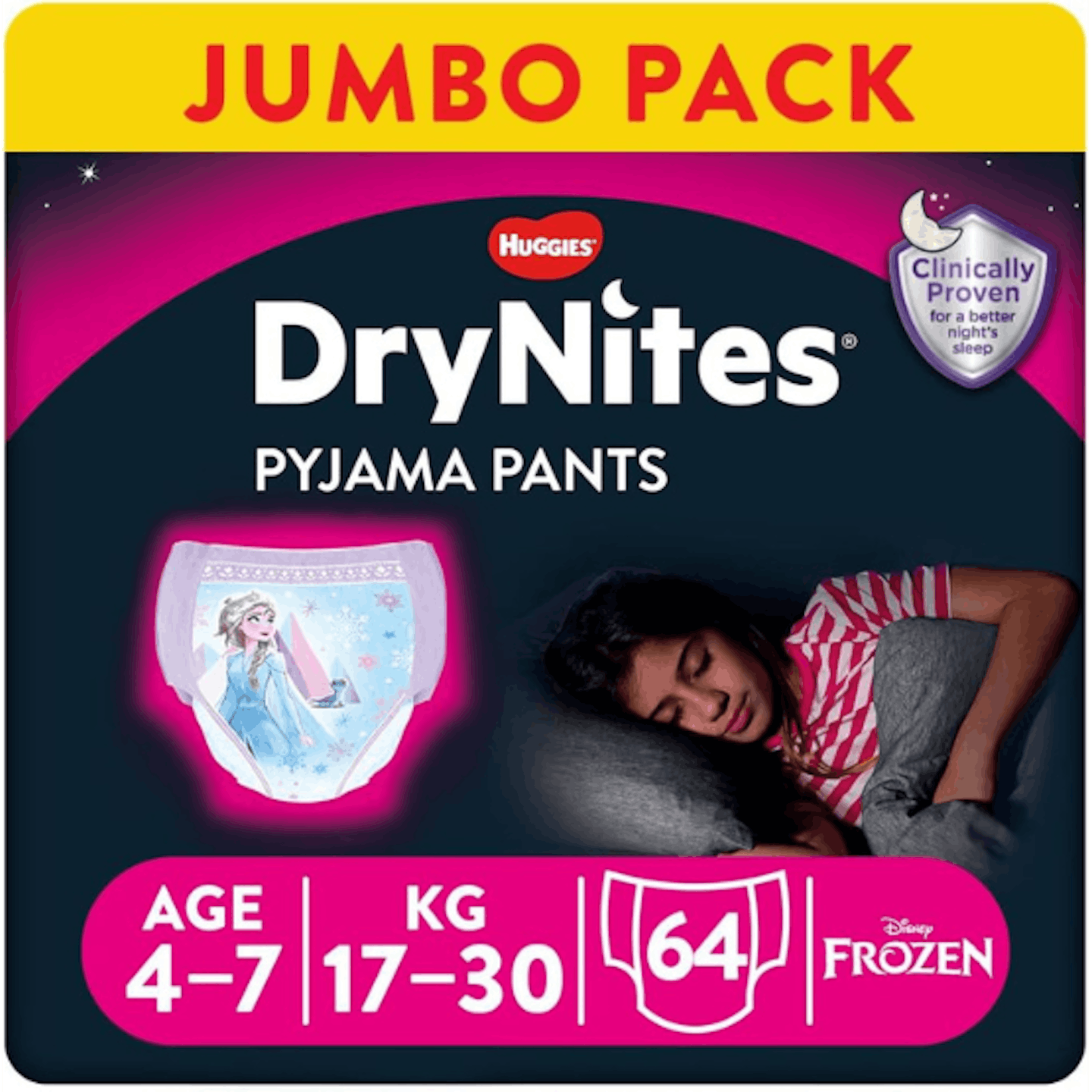 Amazon
AmazonThoughtfully designed for discretion, these nappies are made with quiet materials so they don't rustle or look too bulky. They can be hidden under your little one's pyjamas because of the low waistband and discreet design. However, with 5 layers of protection they will also ensure your little one stays dry. They are available up to 7 years old, and there are teen products from 8-15 years too.
Commercial Content Writer for Mother&baby.com, Laura Healy, says: "My little girl was reluctant to wear nappies at night after being dry for a year, but when she started wetting the bed every night we needed to find something that would keep her dry and not make her feel embarrassed. These nappies are discreet and comfortable but they really do absorb all the urine, so my daughter was not uncomfortable or wet. Plus, in these, she didn't feel embarrassed. In fact, she loved having a Frozen design on them which made putting them on her so much easier."
Pros
- Appealing design
- Discreet to wear
Cons
- They sometimes tear at the side when pulling them up
| Number per pack: | 64 |
| Weight: | 17- 30kg |
| Age: | 4 - 7 years |
- Frozen design
- Value pack
- 5 layers of protection
- Discreet and comfortable
Best sheets for quick changes
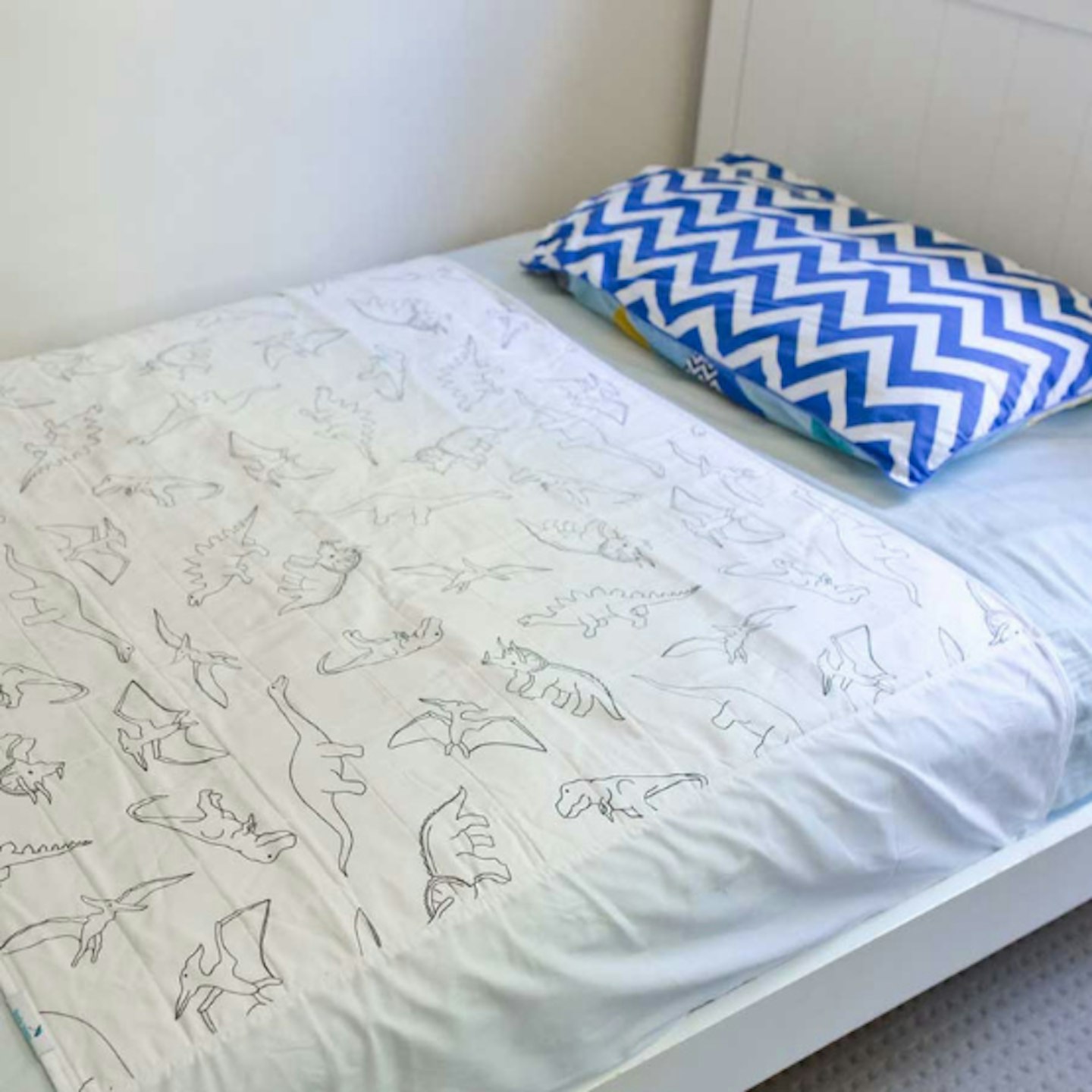 The Nappy Lady
The Nappy Ladywww.thenappylady.co.uk
These washable bed pads are a great solution for quick bed changes. You can just pull them off the bed without having to change all the bedding, plus they have wings to tuck in the sides to keep them in place. Made with a quilted polycotton top, absorbent middle layer and waterproof backing, Brolly Sheets are both comfortable and ensure maximum protection.
Ruth, a reviewer, commented: "These are excellent bed protectors, really easy to use and good absorbency. If there is an accident I can just take the brolly sheet off, there's no need to strip the bed.
I love that they don't rustle - they are soft and breathable. Also, they are easily washed and can be tumble dried. They fit on a full sized single, so useful in the longer term if needed, not just for potty training now. More expensive than some on the market, but definitely worth it! "
Pros
- Great absorbency
- Quick to change
Cons
- Quite expensive
| Dimensions: | 95 x 95 cm |
| Absorbency: | 2 litre capacity |
| Tabs: | 45cm |
- 100% cotton top
- Soft and comfortable
- Quiet and breathable
- Machine washable
Best anti-allergen waterproof mattress protector
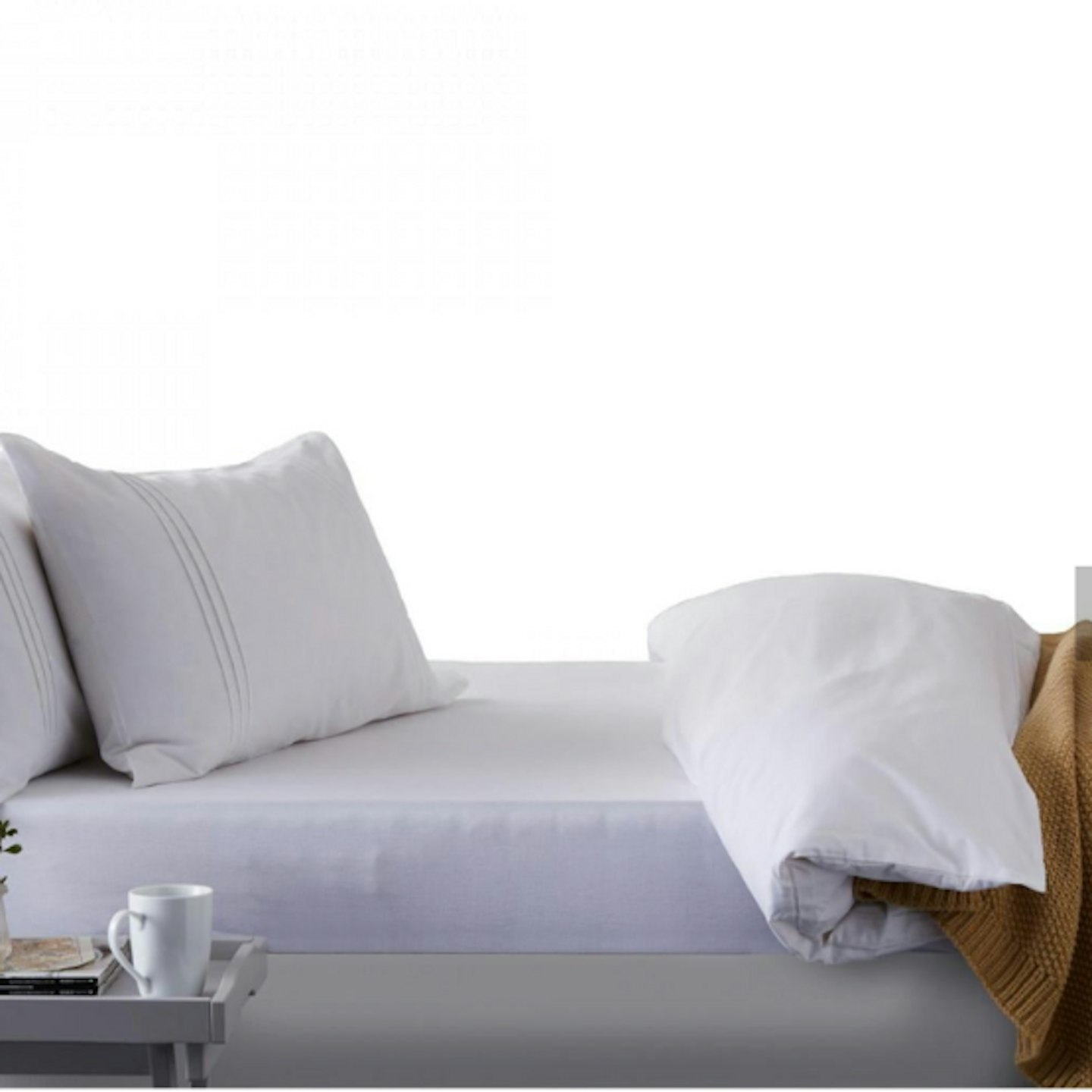 Hippy Chick
Hippy ChickHippychick Cotton Mattress Protectors are high quality, discreet and 100% waterproof. We like that they have an undetectable layer of polyurethane which not only makes them waterproof but also acts as an anti-allergy barrier protecting against dust mites. Plus they come in a variety of bed sizes including cot, cot bed, single, double, kingsize and super kingsize.
One reviewer, Sue, says: "Keeps our toddler's mattress dry through little and big accidents. Ordering some more to get us through potty training!"
Pros
- Anti allergen and waterproof
- A variety of sizes
Cons
- Hard to dry when washed
| Suitable for: | Mattress depth of 30cm |
| Material: | 100% brushed cotton |
| Dimensions: | 90 x 190 cm (single bed) |
- Anti allergen
- Waterproof
- Variety of sizes
- Discreet waterproof layer
What changes can you make to help with bedwetting?
If your child doesn't have a medical reason for wetting the bed, and they haven't been dry through the night yet, there are few things to try at home to help them.
Limit liquid in the evening - try to encourage your little one to drink more in the morning and afternoon so they can reduce the amount they drink in the evening. Try having a water bottle on hand to remind them to drink. However, if your little one is thirsty, or has been busy with sports after school, don't stop them drinking.
Avoid caffeine - Children shouldn't have much caffeine at any time of the day, but try to limit it near to bedtime. Caffeine stimulates the bladder increasing the likelihood that your little one will have an accident.
Try double voiding - This is when you ask your little one to use the toilet at the start of the bedtime routine and then again at the end of the bedtime routine before they hop into bed.
Use the toilet regularly through the day - Encourage your little one to regularly use the toilet whether at home, nursery, or school. It is suggested they pass urine every 2-3 hours.
Talk to your child - If they feel anxious or worried about something it can cause bedwetting. Try to speak to your child to encourage them to open up about anything that might be troubling them.
Do pull-ups prolong bedwetting?
While pull-ups are a great way to avoid the mess and hassle of wet bedding, they can prolong the problem if your child doesn't mind peeing in them at night. Try to use products such as bed mats, mattress protectors and even alarms so your child doesn't become reliant on nighttime nappies. However, if your child has a medical problem causing bed wetting then nappies can help them feel more secure while they are being treated. They are also useful for nights away or holidays where it isn't as easy to do laundry, or your little one might be self-conscious about having an accident.
What is the best mattress for bed wetting?
There is no particular mattress to use if your child wets the bed. You can buy mattresses with waterproof covers, and if bed wetting is an ongoing problem this might be worth consideration. Generally though, you should be able to look after the mattress by using a waterproof mattress protector, or bed pads which will absorb any accidents.
What is the best sheet for bed wetting?
There are lots of options to choose from including washable or disposable, towelling, or padded. The Nappy Lady suggests a padded sheet like the Brolly sheet, which can be stripped back in the middle of the night without having to strip the whole of the bed. However, towelling sheets are also very absorbent and comfortable to sleep on. While plastic sheets might be quick to clean and wipe, and they are reliable for protecting the mattress, they don't absorb urine so your little one will still feel wet, and also they can be noisy to sleep on.
What are the best products for bedwetting?
If your child is struggling with bed wetting they still want to be comfortable at night, and not embarrassed, or waking up cold and wet. Finding the best products is very much dependent on why your little one is wetting the bed, and also considering what suits them. They might be embarrassed wearing pyjama pants if they are older, and they might prefer a padded mattress protector. Alternatively, perhaps a bedwetting alarm will help them, especially if they can understand how it works.
Bedwetting is common and talking to your child if they are old enough about what they would like to do is a good idea. For younger children, a combination of pyjama pants, or waterproof sheets should work well until they can go through the night and stay dry. However, Jennie Lannette Bedsworth says: "The most important thing is to be patient and supportive. Bedwetting is involuntary - getting angry or punishing the child will only make them feel ashamed. With understanding, positivity and the right treatment plan, most kids can achieve dry nights. There's no need for bedwetting to dampen anyone's confidence."
Laura Healy is a Commercial Content Writer for Mother&Baby. She is a mum-of-two girls and loves writing about all things parenting, she is particularly interested in the toddler years and eco-friendly baby products, as well as children’s literature. She has a PhD in Creative Writing and has published short stories in the UK and Ireland, as well as previously writing freelance for her local paper.
About the experts
Jennie Lannette Bedsworth is a licensed clinical social worker and behavioral therapist and a senior contributor at Start Here Parents where she helps children with learning differences and attention issues grow and develop. She specialises in cognitive behavioral therapy (CBT), PTSD treatment, and mental health education Her media appearances include: GoodRx, Psychology Today, and Medium.
Abbas Kanani MRPharmS is a Superintendent Pharmacist with Chemist Click.
